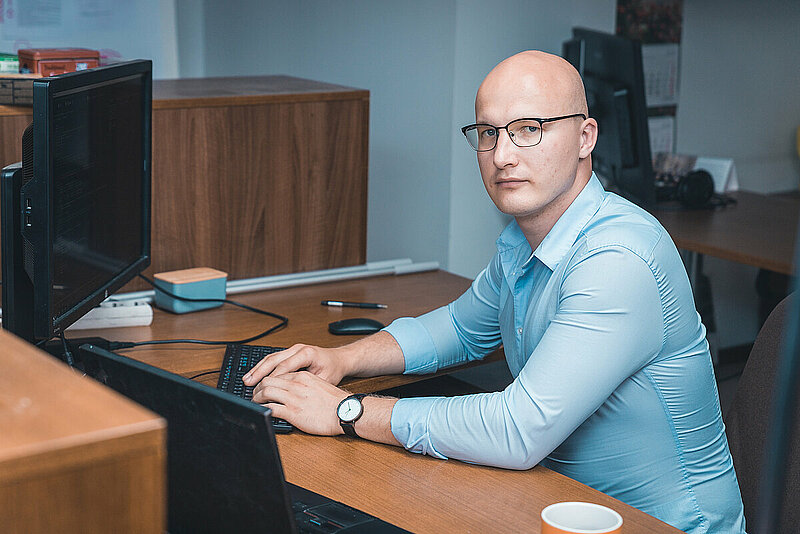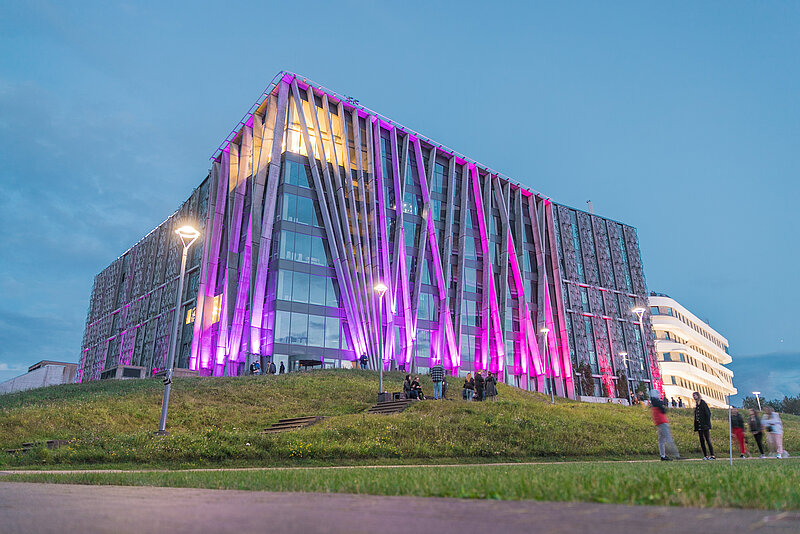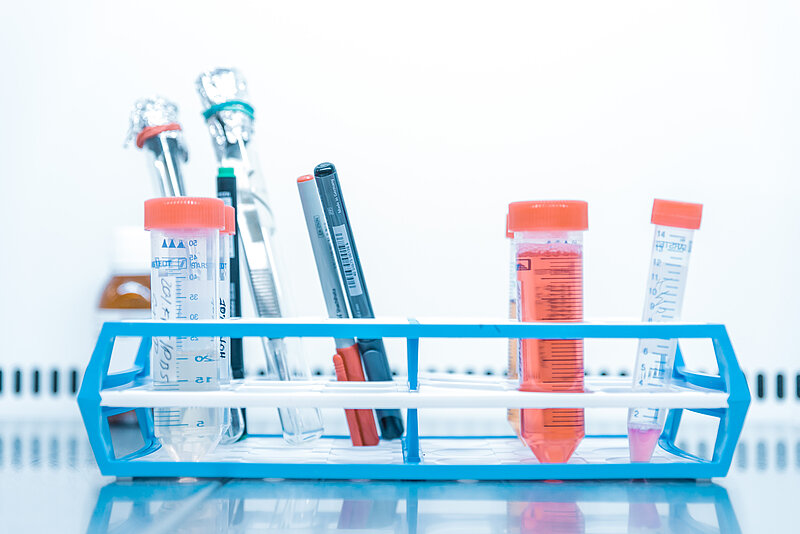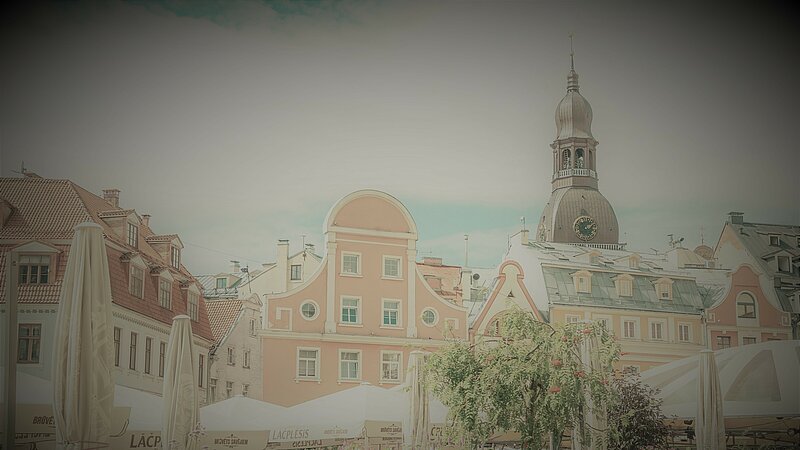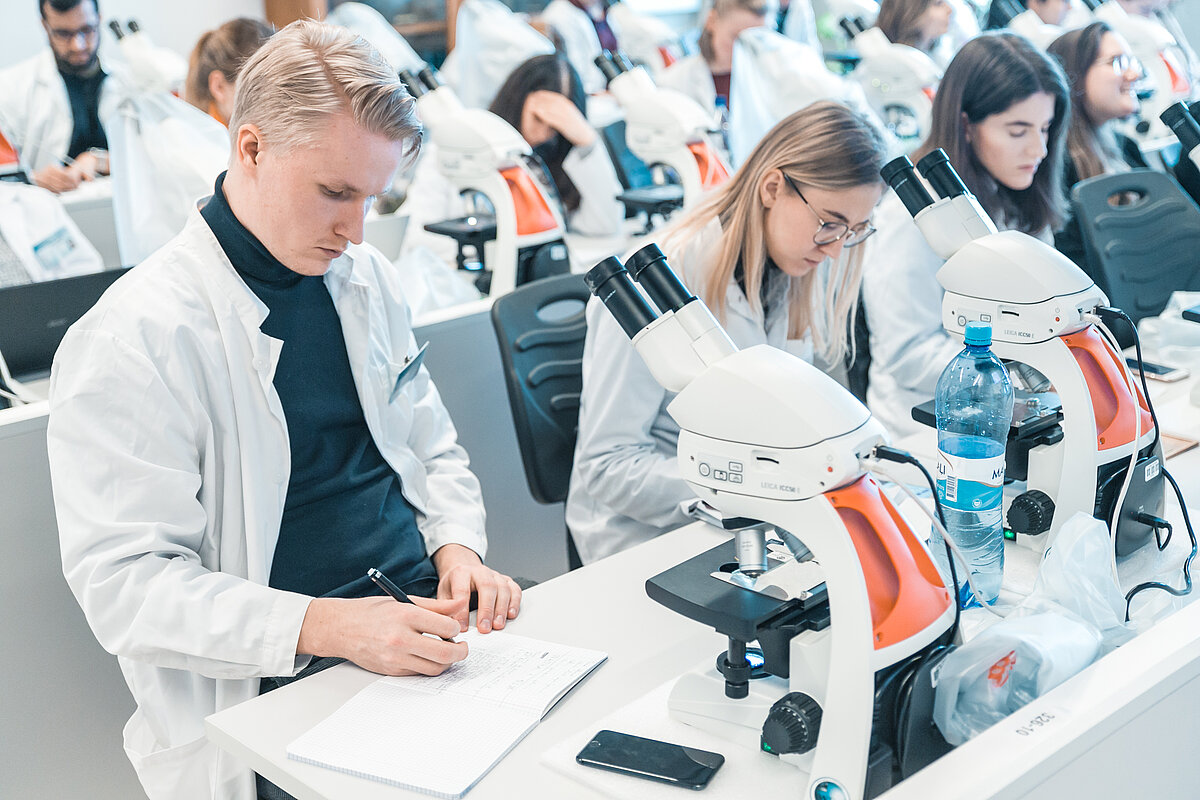
The patron SIA “Mikrotīkls” has decided to support two researchers’ projects of the University of Latvia. One is "A new on hepatocyte cell lines based in vitro technology for assessing the liver cell protective capacity of various substances" and the other is the " Creating extemporal prescription of high toxic and radioactive compounds of cesium, thallium and rubidium antidote.". The support of the patron is administered by the University of Latvia Foundation.
Project: A new on hepatocyte cell lines based in vitro technology for assessing the liver cell protective capacity of various substances. The total amount of the project is EUR 39 400.
Dr. pharm. Jana Namniece
Researcher at the faculty of medicine
Non-alcoholic fatty liver disease, or liver steatosis, is an increasing threat to human health and its distribution is estimated to affect about 25% of the population. The fatty liver clinically can be diagnosed and detected by ultrasonography method. The disease isoften without severe symptoms - non-specific signs are sometimes possible-: tiredness, weakness, feeling of heaviness or burning inthe upper right square of the stomach. In steatosis, less than half of the liver cells are covered with adipose tissue. Increase in fat deposits can lead to cirrhosis of the liver, failure and even tumors. The causes of steatosis are considered to be metabolic disorders, genetics, environmental exposure, and the effects of medication. Studies of new medicines takes 10-15 years, but unfortunately only 10% become medicinal products. The reason for discontinuation of clinical trials or withdrawal of medicinal products from the market in 40-50% in cases is the adverse effects of the medicinal product on the liver. There are no specific medicines for thetreatment of hepatic steatosis.
The project aims to create and develop a new liver steatosis-targeted human liver-cell research technology that would be suitable for identifying medicine side effects, a study of the effects of new medicine or any other substances on the liver. Main research activitiesplanned: 1) to create 2D and 3D liver cell lines steatosis’s in vitro models, 2) find out liver enzymes’ functionality and lipid metabolism in these models; 3) assess the usefulness of these steatosis models effects of various substances on lipid metabolism in the liver studies.
The study will be conducted by a team of University of Latvia’s MF researchers with great experience in in vitro studies, leadingresearcher Dr. habil. biol. Ruta Muceniece, Mag. pharm, researcher Kaspars Jēkabsons, but the study will be led by the youngscientist, Dr. pharm., Jana Namniece. Students of the pharmacy program will also be involved; they will develop bachelor's and master's theses on this topic. Cooperation with other University of Latvia's researchers is also expected.
The study group on lipid metabolism disorders in the liver sees potential in the long term, as its results will contribute to public health, allow young scientists to take over experience from leading researchers and acquire project management experience, and enable both young scientists and students to develop skills in experimental studies.
The study will be carried out thanks to the financial support of SIA "Mikrotīkls" which is administered by the University of Latvia Foundation. "The patron support is of great importance, as its generosity encourages the realization of new ideas and contributes to the growth of young scientists by solving problems that are important for public health" says Jana Namniece.
Project: Creating extemporal prescription of high toxic and radioactive compounds of cesium, thallium and rubidium antidote. The total amount of the project is EUR 35 900.
Dr. pharm. Kristīne Saleniece
The aim of the study is to develop a prescription for highly toxic and radioactive compounds antidote, in order to ensure that any Latvian pharmacy which has permission to make medicines for personalized care, could use to ensure rapid health and life-saving in the event of nuclear incidents, of accidental poisoning of thallium, cesium or rubidium compounds, for example, in the radiopharmaceutical sector.
In the course of the project, it is intended to transfer the knowledge of experienced colleagues to young emerging scientists, colleagues, in order to develop and strengthen the scientific direction of radiomedicine and nuclear medicine in Latvia.
“We believe that the created antidote against cesium, thallium and rubidium derivatives will be useful not only for nuclear medicine workers and Latvian civilians, but will also be included in the National Armed Forces individual defense kit and the provision of personal protection for personnel involved in civil protection. No one anticipates disaster, but agrees with the notion that misfortune does not endanger those who have prepared against it. According to the expression, if I knew where I would fall, I could put a pillow there,” says Kristīne.
An antidote will be developed in the creation of the project to a pharmacy that has a license to manufacture medicines to prepare it very quickly for people poisoned with cesium, thallium or rubidium, or to set up a first-aid kit for staff which are subject to nuclear incidents, that is, in companies operating high-activity radioactive materials.
A group of researchers from the University of Latvia is grateful and honored that the company SIA “Mikrotīkls” supports the submitted project through the University of Latvia Foundation, which focuses on the development of a standard procedure for the preparation of medicinal products meeting the requirements of the European Pharmacopoeia.
A group of researchers from the University of Latvia will be honored to place a confirmation information board in the laboratory regarding the support of one of Latvia's most innovative and science-supporting companies, SIA “Mikrotīkls”, for this study.
About the patron "Mikrotīkls"
The University of Latvia Foundation's platinum patron SIA “Mikrotīkls” is a company that develops MicroTik RouterOS software and manufactures RouterBoard equipment with the aim of providing a wide range of users with powerful, easy-to-use computer network management tools. SIA “Mikrotīkls” has been the patron of the University of Latvia since 2011. The total amount of the donation exceeds 2 million euros.
About the University of Latvia Foundation
Since 2004, the Foundation of the University of Latvia provides an opportunity for patrons and cooperation partners to support both University of Latvia and other leading Latvian universities, thus investing in the future of Latvia. The priorities of the University of Latvia Foundation are to support the best students and researchers, to promote the creation of a modern study environment, as well as the construction and reconstruction of university buildings.

 Academic Centre
Academic Centre